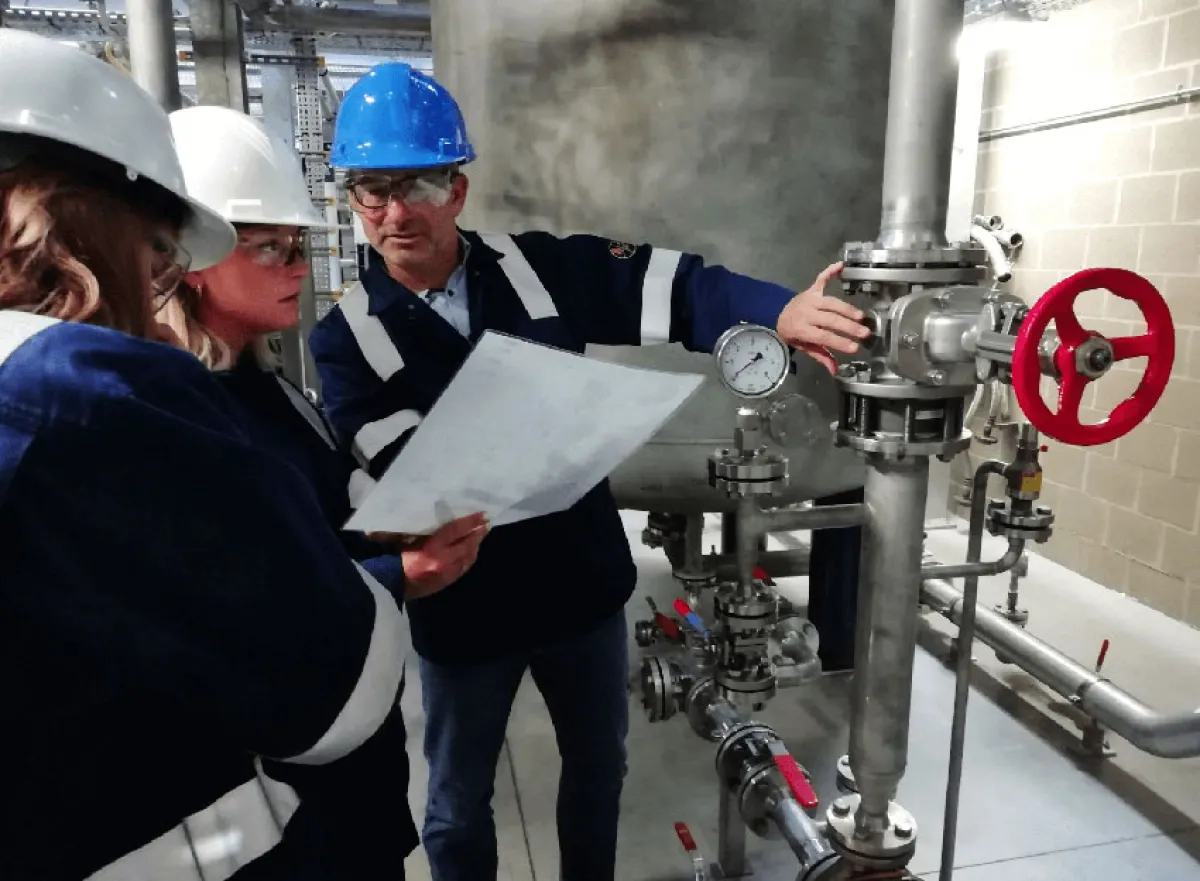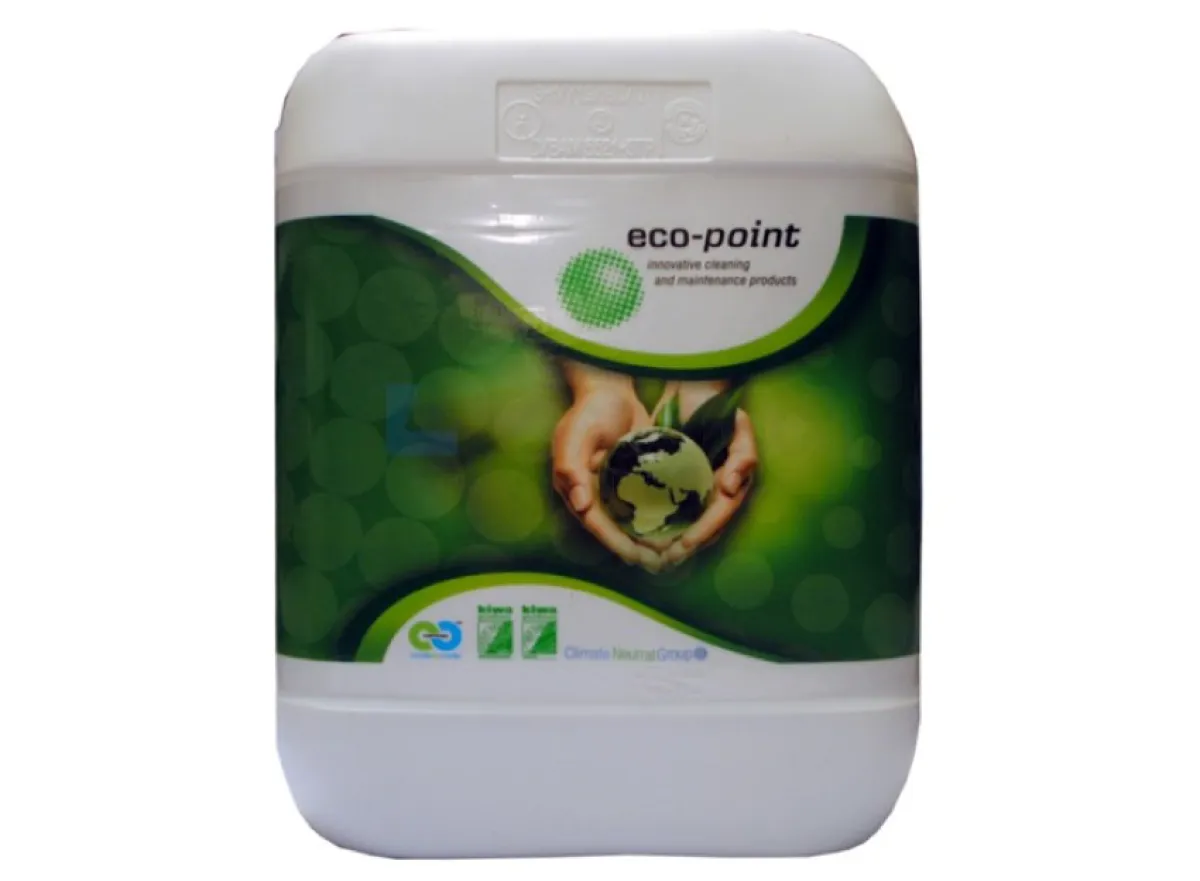How do you go about replacing a harmful solvent in your products with a sustainable alternative? Just the job for the Sustainable Industry Research Centre. For this SUSSOL research project, we partnered with our Applied Computer Science degree programme and Eco-Point to find a sustainable alternative to a harmful solvent.
Solvents are commonly used diluents in chemical manufacturing processes and products such as paints, detergents, adhesives, and inks. Conventional solvents tend to be flammable, toxic, non-renewable, or non-biodegradable. Although sustainable alternatives are available, the search for the right sustainable solvent is both time-consuming and labour-intensive.
The Sustainable Industries Research Centre partnered with the Applied Computer Science degree programme for the 'SUSSOL - Sustainable Solvents Selection and Substitution Software’ research project. The goal was to develop software that allows companies to easily identify sustainable alternatives to harmful solvents.
The SUSSOL software, which was developed in cooperation with various partners across the solvent value chain, relies on an AI algorithm to 'cluster' similar solvents and easily selects the best alternative from these clusters based on a 'sustainability score'.


The challenge
DS Smith produces reusable crates for beer and soft drinks at its plant in Bilzen, which are personalised for individual customers with screen printing. The company uses cellulose thinner to clean the screen printing frames, brushes, and spatulas. However, cellulose thinner is a harmful solvent which could cause damage to unborn children and organs after prolonged exposure. DS Smith therefore contacted Eco-Point, one of the partners in KdG's SUSSOL research project, to find a solution to this issue. KdG and Eco-Point used the SUSSOL software developed by KdG to search for plausible alternatives.
However, none of the currently available solvents met the specific requirements for removing the ink used in the screen printing process. The team soon realised they had to come up with a safe and sustainable alternative to cellulose thinner, able to efficiently dissolve and remove ink, and with a fast drying time.
Our approach
Eco-Point is an expert in the development and production of environment-friendly alternatives to hazardous industrial cleaning agents. The team worked closely with the Production and Health and Safety departments at DS Smith Plastics, identifying all the expectations and requirements for the new product.
In recent years, the Sustainable Industries Research Centre has acquired a lot of expertise on sustainable solvents and how to select them with artificial intelligence. Based on the requirements established by Eco-Point and the physical properties of cellulose thinner, the team identified possible alternatives using the SUSSOL software. Eco-Point’s knowledge centre then tested and adapted the product during the development phase to fine-tune its formula.
The outcome
The definitive formula of the new ink solvent, which will be marketed under the name 'Eco Remoscreen', exceeded all expectations. Moreover, it can be used as an alternative to cellulose thinner, white spirit, acetone, and naphtha.
Unlike the current products on the market, the new environment-friendly ink solvent is biodegradable, more economical, and requires less product to clean and thoroughly degrease the presses. Moreover, it is more versatile as it can also be used as a degreaser for the technical department and for rinsing equipment. Finally, it is also more pleasant to work with as it does not leave an unpleasant odour in the production facility after use. And because Eco-Point was able to eliminate hazardous ingredients, there is less risk of workplace accidents and occupational diseases.
About
- Eco-Point is a manufacturer of ecological cleaning agents for the professional market. Many of its products contain renewable raw materials and are free of hazard symbols. An innovative company, Eco-Point keeps up with the latest developments through its own knowledge centre, as part of its efforts to constantly improve its products and services.
- DS Smith is a global leader in the packaging industry. DS Smith has sites in Ghent, Bilzen, Harelbeke, and Buggenhout, among others.
- The Sustainable Industries Research Centre (KdG) is working closely with the Applied Computer Science degree programme, also at the KdG University of Applied Sciences and Arts, for this project.
Want to know more, collaborate or have a press question?
You can collaborate with our research centre Sustainable Industries on topics such as:
- Greening chemical processes and reusing waste streams.
- AI-based tools developed in-house, to optimise your processes and products.
- Developing alternative propulsion systems, alternative fuel systems, and emission measurements of internal combustion engines.
- Vehicle data analyses using simulations and reverse engineering on CAN bus systems.
Contact us without obligation
- Call +32 3 502 22 16
- E-mail jeroen.geuens@kdg.be
 Karel de Grote Hogeschool
Karel de Grote Hogeschool
